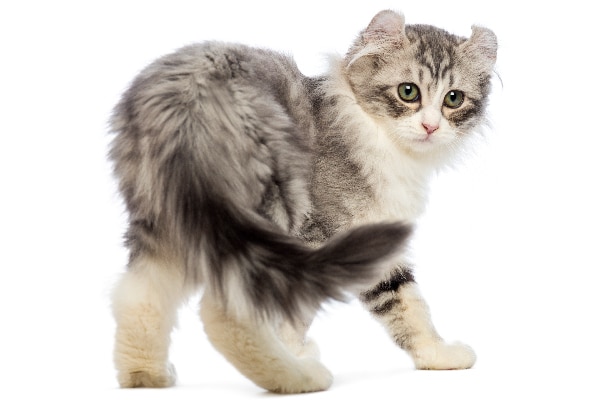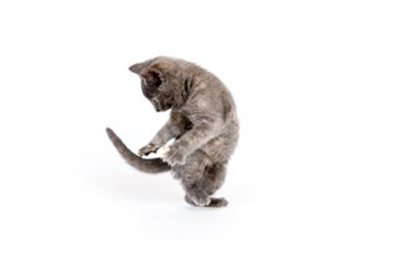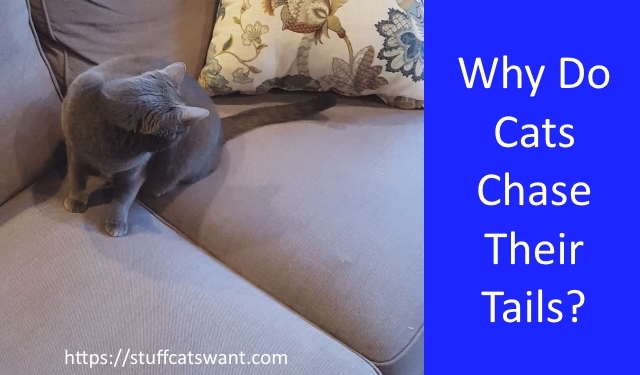Why Do Cats Chase And Bite Their Tail

Feline hyperesthesia syndrome which is also known as rolling skin syndrome could be another medical cause whose initial symptom may be tail chasing.
Why do cats chase and bite their tail. Dislocation bacterial infection abrasion nerve damage laceration self mutilation degloving bite wounds and fan belt injuries. If tail chasing is a new and constant behavior then get your cat to the vet as soon as possible for a checkup as it may be a symptom of something more serious. This behavior is triggered by the same motivation when an excited kitten sees a strip of paper hair pin or q tip on the floor it compels the kitten to arch his back stand up on his hindquarters to try to appear taller or even raise his hair on his back. Stuff cats want suggests redirecting his attention toward other things he can chase like a wand toy which mimics the shape and movement of a tail.
And since your cat lacks complex communication channel to tell you about the pain it will nibble or bite its tail. In addition a rather uncommon condition called. Cats may also bite their tails for behavioral reasons. If no physical cause is found consult further with your vet to determine what behavioral issues might be at work.
Tail injury trauma is so traumatic. I m sure your veterinarian gave monkey a thorough exam. Cats do not usually chase their tail until they are in a certain mood. The above are a subset of potential medical concerns that can cause cats to chase their tails.
Cats normally groom their tails as they do the rest of their bodies. Cats can also have a condition called hyperesthesia syndrome which is caused. If your cat so happens to be allergic a single bite can cause quite an episode. Cats will chase their tails when experiencing tail injuries anal sac infections and skin related problems.
If your cat is excessively licking or biting one specific area of his tail it may be due to pain or discomfort. Sometimes they chew their tails because they re itchy which isn t cause for concern. These include boredom stress separation anxiety and obsessive compulsive disorder. The whole reaction.
Excessive biting and gnawing though can indicate a multitude of medical issues. Cats will chase their tails if there is an infection and the tail is uncomfortable or if it is itchy from allergies. In many cases though self directed aggression is prompted by discomfort. Something as simple as a flea bite on the tail or an arthritic tail joint could spur interest in the tail that escalates to attack.
Since this first happened immediately following a spay it appears discomfort might be a trigger for monkey. Common causes of tail injuries in felines include.



















